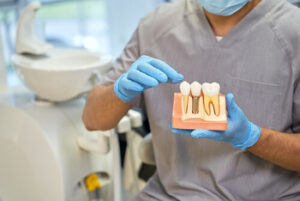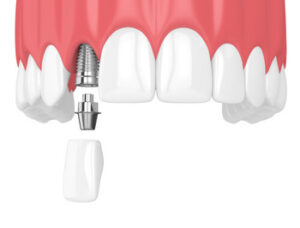In oral health, dental implants represent a transformative procedure, providing a robust solution for missing teeth. Fundamentally, a dental implant involves a surgical component that interfaces with the jawbone or skull to support a dental prosthesis like a crown, bridge, or denture, effectively mimicking natural teeth. This innovation is critical not only for the restoration of a patient’s smile but also for the preservation of facial structure and the improvement of bite and speech impairments.
As dental care advances globally, the market for dental implants expands, with the Philippines becoming a notable destination for affordable dental implants. Yet, this trend in dental tourism doesn’t overshadow the appeal of pursuing dental implant treatment in a country like Australia, where the dental implant cost might be higher. Still, the standards for dental procedures promise unparalleled quality.
This article will explore the nuances of acquiring dental implants in the Philippines versus Australia. While cost-effectiveness makes the Philippines an attractive option for many, especially for those with modest incomes looking for dental work, it’s imperative to weigh the affordable dental implant cost against the spectrum of factors that contribute to the procedure’s overall success and safety. Australian dental clinics pride themselves on cutting-edge implant technology, rigorous dental standards, and thorough treatment planning, ensuring each patient leaves with more than just a new smile but a testament to exceptional care.
The focal point of our discussion will centre on why, despite the draw of an exceptionally low cost of dental implants in the Philippines, one might consider the higher upfront cost in Australia an investment. In the latter, stringent regulatory oversight by the country’s regulatory body, the comprehensive nature of surgery preparation, and postoperative protocols are designed to maximise the success rate and offer numerous benefits for a patient’s long-term oral health.
Disadvantages of Getting Dental Implants in the Philippines
Despite the allure of affordable dental care, there are several disadvantages to consider when seeking dental implants in the Philippines. The dental care system in the Philippines has areas that need to match up to the higher standards found in countries like Australia, particularly in advanced dental implant procedures.
The availability and accessibility of top-tier dental implants and experienced implant dentists may be limited, especially outside metropolitan areas. For those seeking the most sophisticated implant dentistry, this can mean travelling to specific regions or cities, potentially adding to the overall cost and complexity of the treatment plan.

While there are undoubtedly skilled and qualified dentists in the Philippines, the level of experience and further training in implantology can be highly variable. Prospective patients must diligently research and select a dental clinic or dentist with a proven track record in successful dental implant procedures. This is vital since an invasive procedure carries risks, and the quality of care and adherence to dental standards during implant surgery is paramount for a successful outcome and proper healing.
Popular destinations within the Philippines for dental tourism often market themselves as providing quality dental care at an affordable dental implant cost. However, prospective patients should be wary and weigh the additional costs and risks of travelling for surgery, including the potential need for an extended healing period away from home or challenges in securing follow-up care with the same dental professionals.
In summary, while the Philippines offers an accessible path to a new smile for those with modest incomes, the possible pitfalls associated with lower costs and varying dental philosophies mean that diligent research and careful consideration are essential before undergoing such a significant surgical or invasive procedure abroad.
Advantages of Getting Dental Implants in Australia
Australia’s reputation for providing superior dental care is well-earned, with dental clinics nationwide offering a high standard of dental implant procedures. These procedures are not just about placing dental implants; they represent a comprehensive approach to restoring oral health and ensuring the longevity of the results.
The technological edge is a significant factor in the Australian approach to implant dentistry. With a focus on cutting-edge technology, Australian dental implant clinics utilise state-of-the-art equipment for both diagnosis and treatment, which includes 3D imaging and advanced implant surgery techniques. This technology aids in precise implant placement, which is critical to the success of the dental implant procedure, and contributes to a higher success rate and satisfaction among patients.
Australian dental standards are among the most stringent in the world. The country’s regulatory body for dentistry enforces strict guidelines that all dental professionals must adhere to, ensuring a consistent quality of care. This regulatory environment ensures that every invasive procedure, including dental implant surgery, carries the lowest possible risks and that the surgical site is managed with the utmost care.
The training and qualifications of Australian implant dentists are rigorous. Dentists undergo extensive further training and certification before they can perform dental implant surgery, which often includes overseas education and professional residencies. This ensures that dental implant treatment is not only performed by experienced implant dentists but also by practitioners who are at the forefront of their field.
Postoperative care in Australia is comprehensive, with detailed treatment plans outlining the healing process and any additional upfront costs. Dental clinics provide thorough follow-up protocols to monitor the implant site and oral health. This commitment to quality dental care extends beyond the surgical procedure, ensuring patients maintain proper oral hygiene and address any complications swiftly, promoting a smooth healing period and long-term success.
In conclusion, while affordable dental implants in developing countries like the Philippines may be appealing, the advantages of undergoing surgery in Australia—with its advanced technology, rigorous standards, quality dental care, and comprehensive aftercare—can justify the higher upfront cost for many seeking dental implant treatment.
Why Choosing Australia Over the Philippines for Dental Implants
When considering dental implants, the choice of country is paramount. While dental tourism in countries like the Philippines appeals due to seemingly affordable dental implant costs, patients looking for a more comprehensive and technologically advanced experience often prefer Australia. Here’s why:
Advanced Technology
Australian dental clinics are known for their cutting-edge technology. The latest advancements in dental implant procedures are readily available, offering precision and comfort. With state-of-the-art equipment, dental implants are meticulously placed to mimic natural teeth, ensuring that the implant-supported bridge or single dental implant functions optimally. This technological prowess is fundamental for complex cases that require detailed treatment planning and implant placement.
Stringent Regulatory Standards
The Australian dental care sector is regulated by strict guidelines enforced by the country’s regulatory body, ensuring that every dental procedure, including dental implant surgery, upholds the highest dental standards. Patients can be assured that the dental implant treatment they receive is governed by regulatory standards that prioritise patient safety and procedural efficacy.
Higher Education and Training Standards
Dentists in Australia, particularly implant dentists, are required to undergo rigorous education and further training. This ensures that they are adept at handling the complexities of implant dentistry, from initial consultation to the surgical procedure and beyond. The implant surgery process is delicate, and Australian dentists’ qualifications often exceed international benchmarks, assuring a high success rate.
Comprehensive Postoperative Care
Postoperative care is crucial to the success of dental implants. Australian dental clinics offer extensive follow-up protocols, ensuring that the healing process is on track and any complications are managed proactively. This attention to postoperative care contributes to a higher number of satisfied patients who enjoy their new smile without undue stress.
Research and Development
Australia is at the forefront of research and development in dental care. This commitment to innovation means that patients have access to the latest and most effective treatments. It also implies that dental implant costs reflect the investment in quality materials and techniques, which, while possibly higher upfront, can offer greater value in the long term due to the durability and longevity of the implants.
Patient Satisfaction and Outcomes
Ultimately, the goal of dental implants is to restore function and aesthetics. Australian dental clinics measure success not just by the completion of the surgery but by the long-term satisfaction and outcomes for their patients. With a rigorous approach to treatment planning, execution, and follow-up, patients often find that the excellent care and outcomes justify the cost of dental implants in Australia.
While affordable dental care in developing countries like the Philippines is appealing, the numerous benefits of undergoing surgery in Australia are compelling. The combination of advanced technology, stringent regulations, high education standards, comprehensive care, continuous innovation, and positive patient outcomes makes Australia an attractive destination for dental implants. Despite the higher dental implant cost, patients are assured of quality dental care that prioritises their oral health and ensures the longevity of their dental work, making it a worthwhile investment for those who are seeking a lasting solution for missing teeth.
Addressing Common Concerns and Misconceptions
The decision to undergo a dental implant often brings a mix of concerns and misconceptions, especially when comparing dental implants in the Philippines to those in Australia. Let’s address some of these points to clarify the realities:
Debunking myths about the cost versus quality of implants:

Discussing the potential risks and complications with lower-cost implants:
Opting for lower-cost implants may seem financially prudent, but this choice can sometimes lead to increased risks. Affordable dental implants might not include the comprehensive treatment planning and follow-up care crucial to identifying and mitigating complications. Dental tourism can also complicate the continuity of care, as any postoperative issues would necessitate further travel or transferring care to a local dentist, possibly adding unforeseen costs.
Insurance and financing options in Australia:
Australia offers numerous financing and insurance options to manage dental implant costs. Many Australian dental clinics provide payment plans, and there are health insurance that cover a part of the dental implant procedure, reducing the financial burden on the patient. These avenues ensure that quality dental care remains accessible.
The reality of postoperative complications and the importance of proximity to the care provider:
Postoperative care is as crucial as the implant surgery itself. Proximity to your dental clinic ensures that you can quickly address any complications. Australian dental clinics often schedule regular follow-ups as part of their dental implant procedures to ensure proper healing and to address any issues promptly. While dental implants require a commitment to proper oral hygiene and maintenance, the peace of mind that comes with easy access to your implant dentist cannot be overstated.
In essence, while affordable dental options in the Philippines may seem attractive, it is important to weigh these against the potential risks involved and the additional costs that may accrue from postoperative complications. Australian dental care provides a holistic and regulated approach to implant dentistry, emphasising long-term oral health and successful outcomes for all the teeth involved.
Making an Informed Decision
When it comes to choosing a country for getting dental implants, informed decision-making is key. Here’s how to approach the process:
Factors to consider before choosing a country for dental implants:
The first consideration should be the quality of dental care. This encompasses the standards upheld by dental clinics, the materials used for the dental implants, and the expertise of the implant dentists. Additionally, the cost of dental implants should be weighed against the potential need for follow-up visits or additional procedures like bone grafting, which might be necessary if there’s insufficient jawbone to support the implant post.
Dental tourism may offer affordable dental implants, but it’s crucial to factor in travel expenses, the risks involved with surgical procedures in different healthcare systems, and the possibility of additional costs arising from complications or the need for further treatment. Countries like the Philippines might present an exceptionally low cost compared to Australia, but it’s important to assess what’s included in that cost.
The significance of comprehensive dental consultation:
An initial consultation is vital regardless of where you choose to undergo surgery. A thorough examination by an experienced implant dentist can reveal critical details about your oral health, the condition of your natural teeth, and the specific dental treatment needed. A comprehensive consultation should also outline a detailed treatment plan, including any preparatory dental work required and a clear indication of the healing period and any risks involved.
How to evaluate the credentials and reputation of a dental implant provider:
Evaluating a dental clinic or dentist’s credentials involves researching their qualifications, further training, and experience in implant dentistry. Look for reviews and testimonials from satisfied patients, and consider the success rate of the dental implant procedures they’ve performed. A trustworthy provider should be transparent about their treatment plans, dental implant costs, and the healing process.
Preparing for the procedure: Steps to take regardless of location:

Ultimately, an informed decision on where to get dental implants—whether chasing affordable dental options in developing countries or opting for the higher upfront cost but potentially more comprehensive care in developed nations—should be based on careful consideration of all these factors, ensuring a new smile that’s as healthy as it is happy.
Conclusion
In summary, while the allure of affordable dental implants in the Philippines may tempt many, it’s the quality of dental care that must be paramount when considering such a significant investment in your oral health. Dental implant procedures are not merely a matter of cosmetic surgery; they are intricate surgical interventions that require skilled implant dentists, rigorous dental standards, and a detailed treatment plan. Weighing dental implant costs against the potential risks and long-term success rate is essential. For those seeking a blend of quality and value, Digital Dental Surgery Sydney stands as a beacon of excellence in implant dentistry. Embarking on the journey to restore your smile with confidence begins with a call to action: visit Digital Dental Surgery Sydney and connect with experienced professionals at (02) 8294 5812 for a consultation that prioritises your dental health and a new smile that lasts.
Note: Any surgical or invasive procedure carries risks. Before proceeding, you should seek a second opinion from an appropriately qualified health practitioner.
References:
https://pubmed.ncbi.nlm.nih.gov/8699485/
https://www.dentalhealth.org/Blog/dental-implants-and-how-crucial-replacing-teeth-really-is
www.verywellhealth.com/what-to-expect-during-a-dental-implant-procedure-1059372
http://www.healthline.com/health/dental-and-oral-health/dental-implant-procedure#seeing-a-dentist
https://nationaldentalfoundation.org.au/dental-implants-cost-australia/
https://www.webmd.com/oral-health/dental-implants






